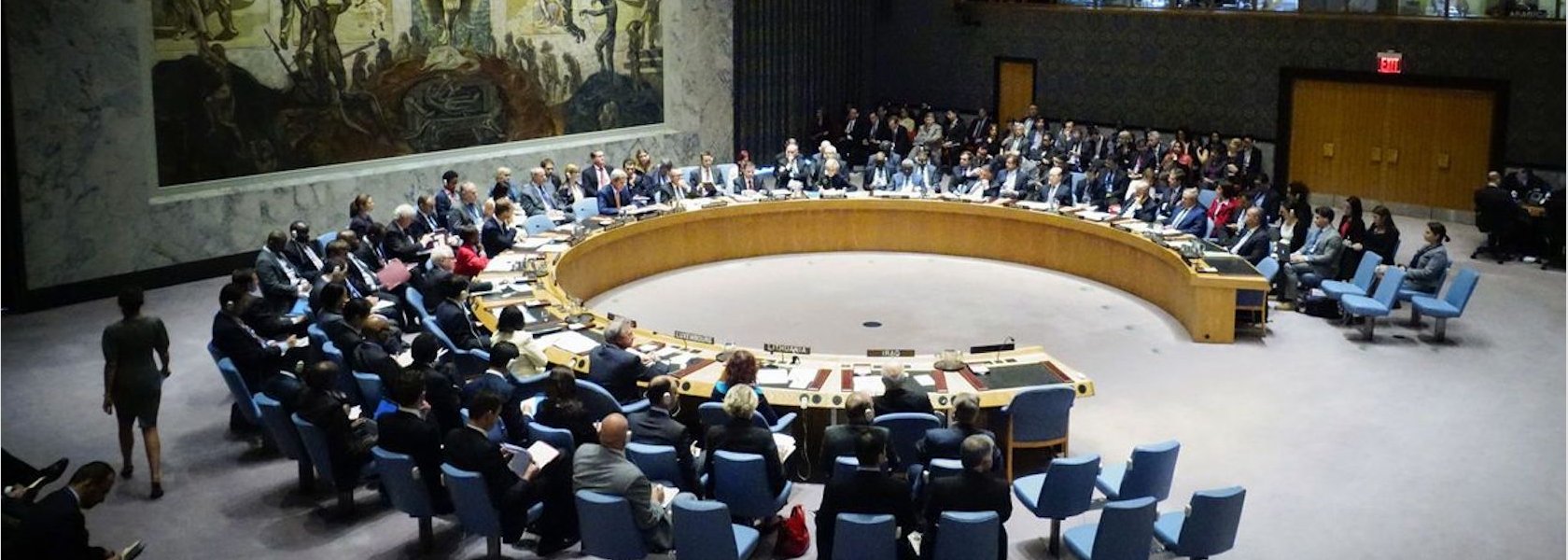
“FIDH welcomes efforts to pro-actively counter terrorist threats. Yet, we are concerned that the adoption of the International Framework may be a premature step that will effectively allow states to adopt more national policies that violate international law and human rights in the name of countering “narratives”, a vague concept which actually remains to be legally defined”
The framework, requested through a Presidential Statement adopted during Egypt’s presidency of the Security Council in May 2016 [3], falls short on key aspects:
First, the framework intends to counter terrorist narratives without a comprehensive and evidence-based assessment of conditions conducive to extremism and terrorism. It fails notably to address how human rights abuses are used as a recruitment tool, or even how the lack of enjoyment of human rights, notably economic and social rights, fuel terrorist violence.
Secondly, the framework leaves too much for national interpretation. For instance, the framework states that “the line between unlawful and lawful communications can be difficult to discern,” but does not provide any meaningful recommendations for how states should uphold their obligation to guarantee freedom of expression under article 19 and 20 of the International Covenant on Civil and Political Rights (ICCPR), while countering terrorism and violent extremism.
Furthermore, the framework fails to provide sufficient guidelines to protect human rights while countering terrorist narratives, as it does not refer to the best practices developed by the Office of the High Commissioner for Human Rights (OHCHR), the recommendations of the Special Rapporteur on Counter-Terrorism and Human Rights, or how OHCHR participated in the consultations and will be available to work closely with states on developing human rights compliant national frameworks to counter terrorist narratives.
Last but not least, FIDH deplores that the development of this comprehensive international framework has not been transparent and has been conducted without cooperation with civil society, namely human rights organizations. CTC, with CTED, held closed consultations with member states, but has not meaningfully provided a space for civil society engagement and contributions apart from its special meeting on “preventing the exploitation of ICT for terrorist purposes” in December 2016.
This framework will be detrimental to the work of the future Office of Counter-Terrorism (OCT) [4],which will be responsible for facilitating the implementation of the framework with member states.
FIDH recalls that it is Egypt, a country with a long history of abusing counter-terrorism to crack down on political opposition and independent civil society, that has been instrumental in leading this effort to counter terrorist narratives, with the adoption of the framework that its Presidency requested, the CTC approved under its chairmanship, and its country voted for in its position on the Security Council.
FIDH is all the more concerned that the adoption of this framework cannot be divorced from the current geopolitical realities that underpin the current trend in global counter-terrorism efforts.
During the Summit in Riyadh, Saudi Arabia on May 21st, the United States [5] made clear that human rights values would not be a priority in security cooperation. [6]
Given the above, recent state measures signal a shift to promoting kinetic counter-terrorism measures and a fight against “ideology” at the expense of human rights. This shift will necessarily result in enhanced surveillance, crackdown on civil society or the repression of dissenting voices. This development is a potential danger for our rights.




